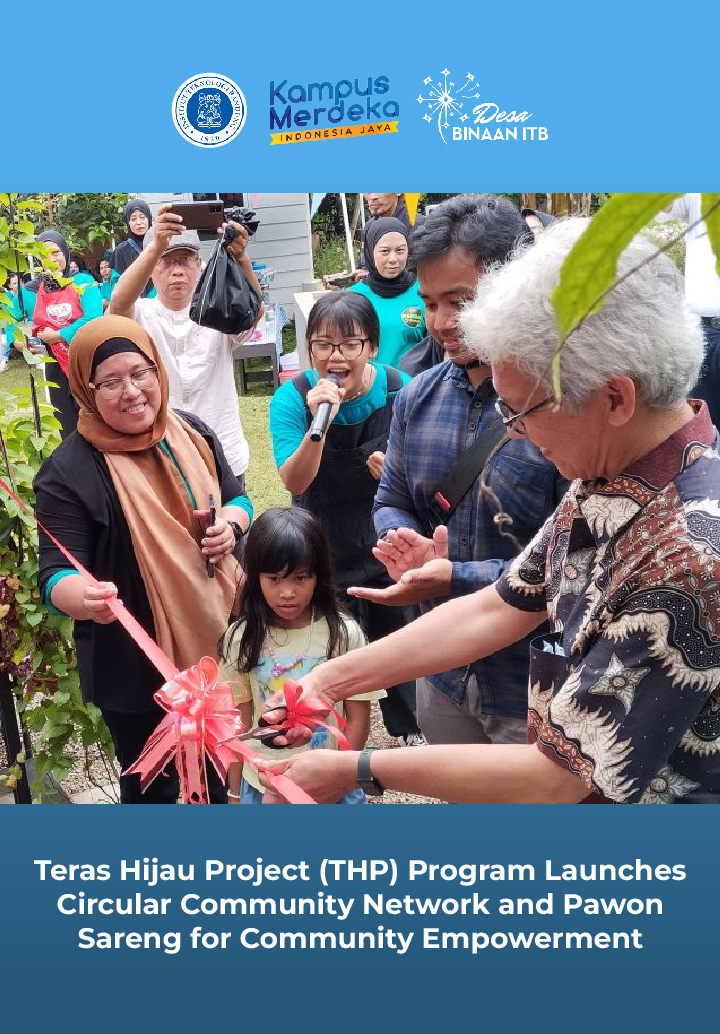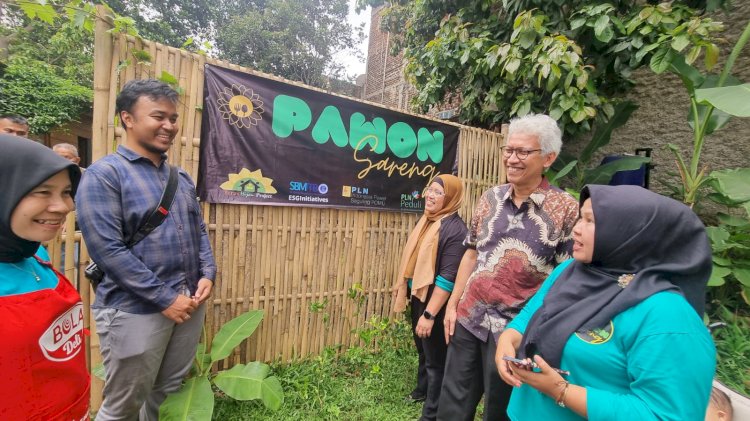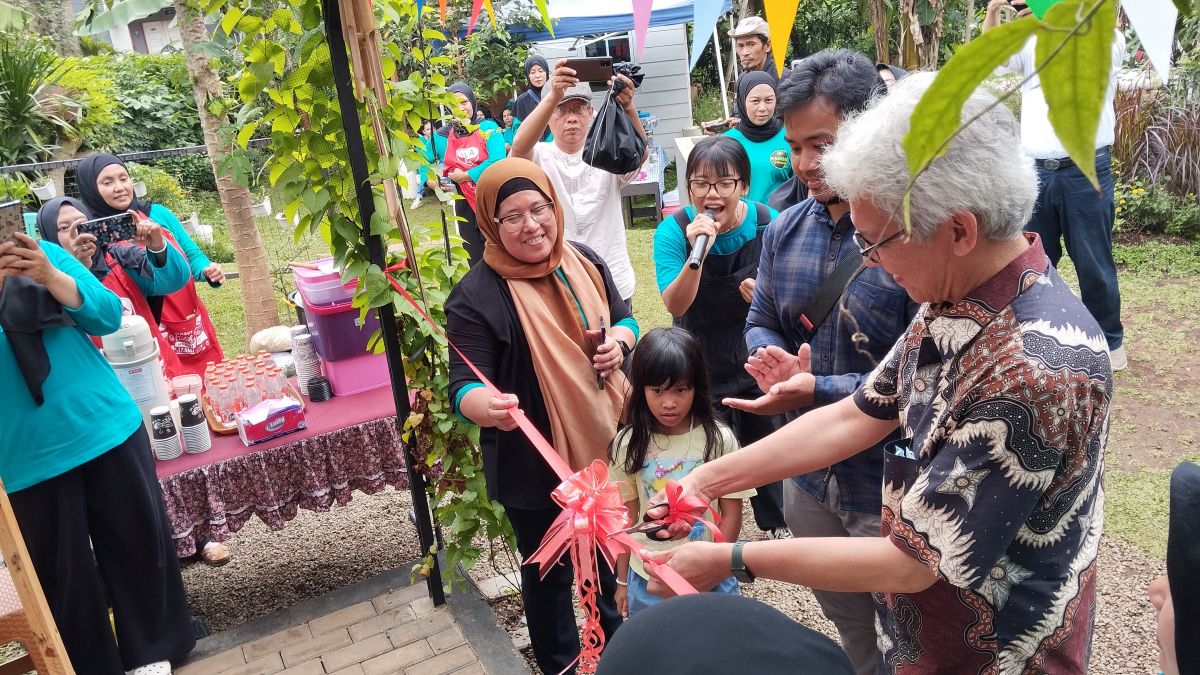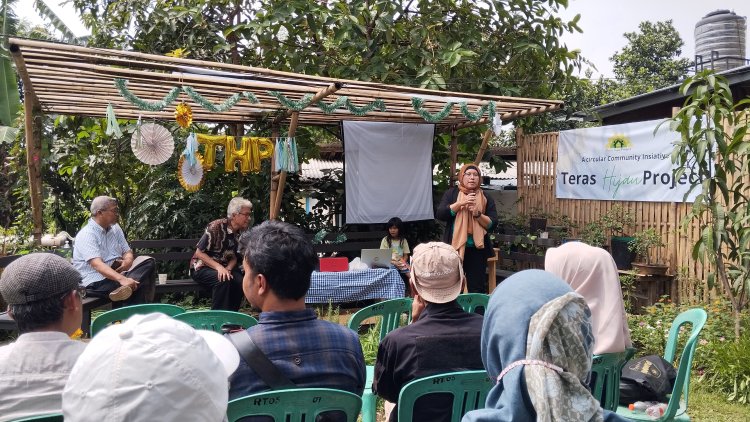

Teras Hijau Project (THP), an initiative by lecturers from the School of Business and Management at Bandung Institute of Technology (SBM ITB), officially launched the Circular Community Network alongside the introduction of a community empowerment program called Pawon Sareng.
Pawon Sareng is a community business run by housewives, serving as a pilot project for a household business with a Climate Fit concept. It aims to reduce environmental impact, manage the surrounding environment, and introduce and develop a new economy with various sustainability-based business models to foster community self-reliance.
"I appreciate initiatives like this that we have offered through practical activities. This community effort is a significant step towards future sustainability," said Taufan K., a representative from CSR PLN Indonesia Power Saguling.
"This forum bridges the difficulties of groups; one component can be addressed by another," said Hasna, an environmental engineering graduate who lives in one of the communities. "We can learn together, build a community to create strong networks and collaborations," she added.
At the same event, Melia Famiola Hariadi, the Coordinator of The Principles for Responsible Management Education (PRME) and Founder of Teras Hijau Project, added that Pawon Sareng is a shared kitchen for the mothers of Sukaraja. It is a model of how MSMEs can act as pioneers in the circular economy through collective activism.
The launch event, held at Gang Hambali, Jalan Mentor RT 01/RW 07 Sukaraja, Cicendo, Bandung, was attended by waste management activists in Greater Bandung, such as the Suci Foundation, Bening Saguling Foundation, Bank Sampah Bumi Inspirasi, Bank Sampah Komunitas Cika Cika, Bank Sampah Sukamaju, and several other environmental activists, including lecturers and students from ITB.
The Circular Community Network program is a collaboration between SBM-ITB and PLN Indonesia Power Saguling as part of the company's CSR program. They aim to transform waste into a source of food security and a precursor to the recycling industry through social innovation.
According to Taufan K., this collaboration began in 2021, with an increased focus on community empowerment issues. The collaboration involves academics, practitioners, and active participation from the Teras Hijau Project community at ITB. "God willing, we can collaborate more and more in the future," he added.


